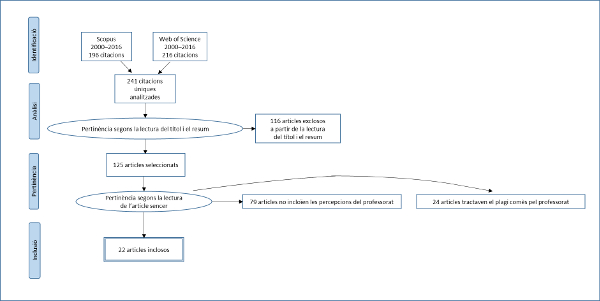— Objectiu: documentar processos de treball col·laboratiu, realitzat en coautoria, per a la producció científica especialitzada d’una xarxa d’experts en electrònica i computació, com a part d’un projecte sobre activitat científica, escriptura i trajectòries formatives doctorals (Carrasco [et al.], 2011; Kent, 2013; Brambila-Limón, 2015; Brambila-Limón [et al.], 2016).
Metodologia: estudi qualitatiu d’un grup de nou investigadors d’electrònica el director del qual ha impulsat la publicació col·laborativa durant vint anys. Presentem dades d’entrevistes amb una durada mitjana de dues hores cadascuna, i mesures bibliomètriques de la seva productivitat, des de la plataforma institucional del centre de recerca on treballa l’investigador principal.
Resultats: presentem dades d’un grup de científics que col·laboren per investigar i publicar com a coautors, organitzats en quatre grans apartats: coautoria, tecnologia, rols i identitat, i col·laboració. El grup publica en anglès, amb un índex de publicació anual per investigador superior de mitjana al d’altres científics de la mateixa disciplina a Mèxic: 7,2 (si es tenen en compte ponències de congrés) i 3,7 (si només es consideren articles en revistes especialitzades). Per millorar les contribucions, col·laboren sota la direcció de l’investigador principal del grup i tenint en compte els temps de publicació de la revista triada. En una investigació altament competitiva d’un camp en desenvolupament, la col·laboració grupal pot ser crucial per aconseguir reconeixement. — Objetivo: documentar procesos de trabajo colaborativo para la producción científica disciplinar, realizado en coautoría, de una red de expertos en electrónica y computación, como parte de un proyecto sobre actividad científica, escritura y trayectorias formativas doctorales (Carrasco [et al.], 2011; Kent, 2013; Brambila-Limón, 2015; Brambila-Limón [et al.], 2016).
Metodología: estudio cualitativo de un grupo de nueve investigadores de electrónica cuyo líder ha impulsado la publicación colaborativa durante veinticinco años. Presentamos datos de entrevistas de dos horas en promedio cada una y mediciones bibliométricas de su productividad, desde la plataforma institucional del centro de investigación en donde trabaja el investigador principal.
Resultados: presentamos datos de un grupo de científicos que colaboran para investigar y publicar como coautores, organizados en cuatro grandes apartados: coautoría, tecnología, roles e identidad y colaboración. El grupo publica en inglés, con un índice de publicación anual por investigador cuya media es mayor a la de otros científicos de la misma disciplina en México: 7,2 (si se toman en cuenta ponencias de congreso) y 3,7 (si solo se consideran artículos en revistas especializadas). Para mejorar sus contribuciones, colaboran dirigidos por el líder del grupo y atendiendo a los tiempos de publicación de la revista elegida. En una investigación altamente competitiva de un campo en desarrollo, la colaboración grupal puede ser crucial para lograr el reconocimiento. — Objective: This article presents evidence of collaborative work processes in disciplinary scientific production coauthored by a network of experts in electronics and computing by documenting this network’s scientific activity. It is part of a wider study on writing and training trajectories of doctoral students (Carrasco [et al.], 2011; Kent, 2013; Brambila-Limón, 2015; Brambila-Limón [et al.], 2016).
Methodology: The research took the form of a qualitative study of a group of nine researchers in electronics whose leader has promoted collaborative publication over a period of 25 years. Each researcher completed a personal interview of approximately two hours and bibliometric measures of their productivity were made using the group’s institutional platform.
Results: This article presents data on a group of scientists who collaborate in research and publication as coauthors. The results are presented in four sections: coauthorship; technology; roles and identity; and collaboration. The group, which publishes in English, sustains a higher rate of publication than other Mexican groups in the same discipline: 7.2 articles per researcher per year when conference papers are counted and 3.7 articles per researcher per year when only articles in peer-reviewed journals are considered. Their continuous improvement is monitored by the group leader, who pays close attention to publication lag times of each journal. We confirmed that group members play various roles to support their academic productivity, acting as authors as well as reviewers and evaluators of each article they produce for publication. In a highly competitive research and development field, we propose that group collaboration may be crucial in attaining recognition.


